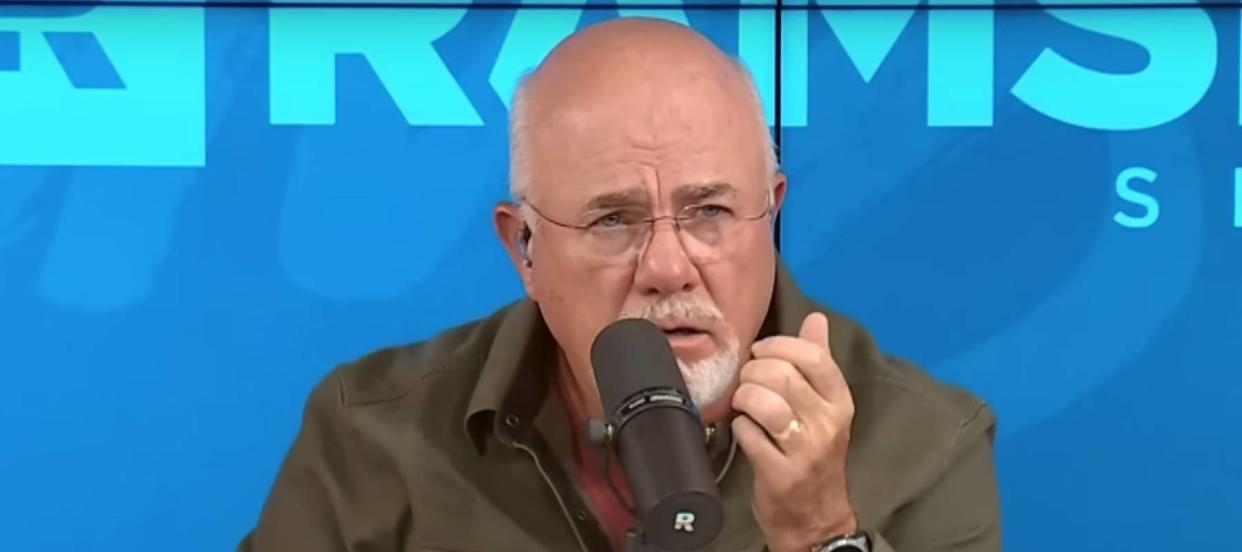'You're 65 years old and you’re broke': This Boston man wants to retire at 72 — but he's $184K in debt and still owes alimony. Dave Ramsey bluntly told him he's at least half a million behind

By the age of 67, most Americans would need to have saved at least 10 times their annual income to retire according to Fidelity Investments. Unfortunately, many older adults are nowhere close to that.
Boston-based Rick is part of this laggard group. He wants to retire by age 72, but his debt and alimony payments have prevented him from accumulating enough capital.
Don’t miss
Commercial real estate has outperformed the S&P 500 over 25 years. Here's how to diversify your portfolio without the headache of being a landlord
Finish 2023 stronger than you started: 5 money moves you should make before the end of the year
The US dollar has lost 87% of its purchasing power since 1971 — invest in this stable asset before you lose your retirement fund
“You’re 65 years old and you’re broke,” Dave Ramsey told him on a recent episode of his show. Here’s why the finance personality argues Rick needs another $500,000 or $600,000 to close the gap.
Effectively broke
Rick has a mortgage worth $136,000, an auto loan worth $30,000 on his truck and another $18,000 in debt from a recent solar installation. That’s a total debt burden of $184,000. He also owes alimony to his ex-partner, which he says costs roughly $10,000 a year.
Unfortunately, his debt outweighs his investable assets. Rick says he earns $100,000 a year, has $110,000 in his 401(k) and another $5,000 in emergency savings. Based on these numbers, Ramsey believes he’s effectively broke.
To be fair, Rick’s home is probably worth something so “cash poor” would be a more appropriate description. Also, some of his expenses should be lower soon. His alimony payments stop at the end of next year, while some federal tax rebates should lower his solar loan to $9,000 in 2024. That gives him more room to invest.
Nevertheless, he’s still far behind on his target of retirement by 72. Ramsey believes he needs a more aggressive strategy to catch up.
Read more: 'It's not taxed at all': Warren Buffett shares the 'best investment' you can make when battling inflation
Aggressive strategy
Based on his current strategy, Rick’s at risk of falling short on his savings for retirement.
“I would get more radical if I was in your shoes,” Ramsey tells him.
“I would get these two debts paid off immediately, and I would stop adding to your 401(k) temporarily. I want the truck and the solar paid off inside of 12 months, really. Beans and rice, rice and beans, you have no life until you get that done. That is job one, it's an emergency.
“Or sell the stupid truck, one of the two.”
Ramsey also wants Rick to fully pay off his house within three years instead of seven.
Downsizing his truck and paying off debt should allow Rick to dedicate a bigger portion of his income towards savings and investments. Assuming he saves 15% of his gross income ($15,000) a year and invests it in a low-cost index fund that delivers 10% in annual compound growth (the average annual return on the S&P 500), he could accumulate $356,666 within seven years.
Taking it another step further
Unfortunately, even Ramsey’s aggressive strategy isn’t enough to prepare Rick for retirement. That $356,666 he’ll end up with is just three-and-a-half times his annual income, well below the 10-fold target recommended by Fidelity.
Rick could also consider downsizing his home. Moving into a smaller, less expensive home would see his mortgage expense lower — and potentially unlock some cash for investments. With the recent surge in home values, downsizers are in a “lucky” position, Skylar Olsen, the chief economist at real estate company Zillow, told Business Insider.
Working longer is another option worth considering for anyone in a position like Rick’s. A significant 8.2% of Americans over the age of 75 were working as of 2022, according to data from the U.S. Labor Department. By 2032, the department expects that rate to jump to 9.9%. Simply put, Rick’s not alone in his concerns, but for the millions of older Americans who, like him, are feeling squeezed by rising costs and a lack of savings, it’s still not too late to start.
What to read next
Thanks to Jeff Bezos, you can now cash in on prime real estate — without the headache of being a landlord. Here's how
Worried about the economy? Here are the best shock-proof assets for your portfolio. (They’re all outside of the stock market.)
Rising prices are throwing off Americans' retirement plans — here’s how to get your savings back on track
This article provides information only and should not be construed as advice. It is provided without warranty of any kind.
